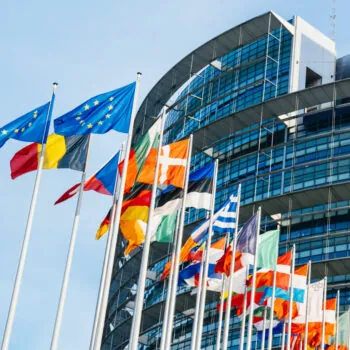Lower Costs, More Competitiveness and Reduced Climate Risk
The Commission’s 2030 energy and climate package does not set out a credible framework for driving investment into a low cost, low carbon, secure and competitive European energy system. The package fails to protect consumers and small businesses from volatile global energy markets, undermines investment in European clean technology manufacturing supply-chains and provides no practical support to European countries hardest hit by the financial crisis.
The proposed 40% domestic GHG target is at the lowest end of the reduction range previously agreed by the European Council, and is not the most cost-effective GHG reduction trajectory. If unchanged it would damage the EU’s influence in international climate negotiations, increasing the risks of serious climate change damage to European citizens and businesses.
The March Council should improve the cost-effectiveness, impact and fairness of the package by agreeing conclusions for further practical action in five areas:
-
Reforms to lower costs for all: Task the Commission to develop proposals for reforms which could lower costs to business and consumers by €1.5-€2.5 trillion to 2030, including: new EU infrastructure goals and market integration rules; strong energy efficiency goals and measures; and enhanced financial support –especially for energy efficiency in crisis-hit countries.
-
Increase EU’s GHG reduction offer for Paris 2015: Agree that in February 2015 the EU will consider going beyond the -40% GHG domestic target when putting forward its commitments for the 2015 Paris talks. This offer should be based on a review of the EU low-carbon roadmap using up-to-date climate risk estimates and mitigation cost modelling.
- More certainty for clean energy manufacturing: Provide stronger signals for continued investment in EU supply chains in clean energy and advanced infrastructure by agreeing to develop a nationally-binding framework in which Member States can commit to either renewable energy or power sector decarbonisation targets for 2030.
- Fair incentives for competitiveness: Capitalise on the opportunity that the shift to a capital-intensive, low carbon economy gives to grow EU manufacturing. Drive improved competiveness and innovation in energy intensive industries through more targeted incentives, and remove broad exemptions that raise costs and destroy jobs in other sectors.
- Better governance: Give more investor certainty and transparent analytical foundations for EU climate policy by asking the Commission to prepare legislation for a “Climate Act for Europe” including the establishment of a European Climate Change Committee.
The full report is attached.


